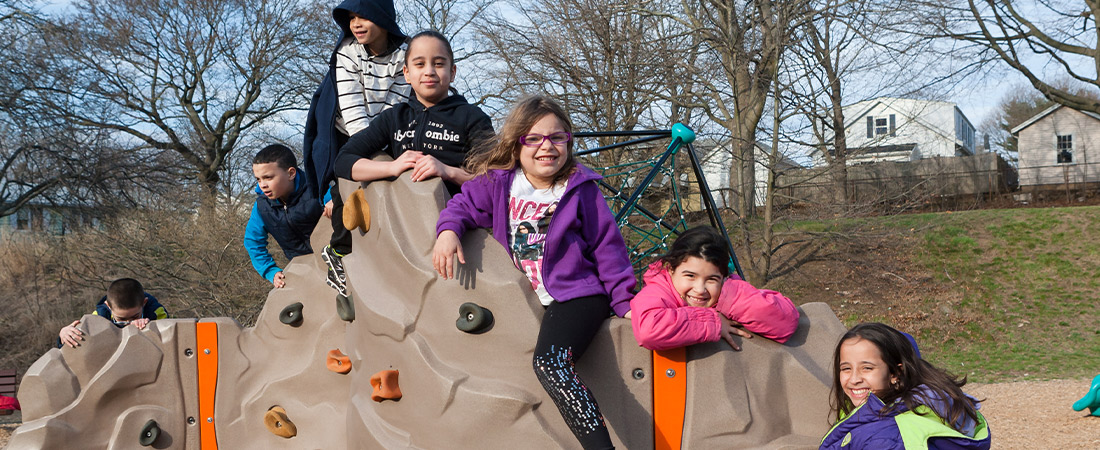
Powerful learning experiences often happen outside of the school day. EDC builds, implements, and evaluates out-of-school and nonformal programs that deliver core civic, educational, and life skills to young people in diverse environments.
In the United States, EDC’s support for out-of-school time (OST) and nonformal learning leverages children’s and youth’s strengths to help them succeed at school, engage in their communities, and lead productive and healthy lives. We design, evaluate, and provide technical assistance on high-quality OST programs that prepare young people for success—whether pursuing social and academic enrichment after school or leaving school and starting a first job.
Internationally, EDC develops and implements programs that support educational and economic opportunities for out-of-school youth. Working within the unique context of each country, we partner with governments, industry, and nongovernmental organizations to provide young people with the skills, knowledge, and opportunities they need to be market-ready and contribute to society.
Related Content
EDC Talks: How Do You Develop High-Quality Out-of-School-Time Programs?
Children can learn a lot from programs that take place outside of school hours.
4 Ways to Strengthen Youth Programs in Conflict and Crisis Areas
Building youth programs in unstable regions can be challenging. Here are four ideas for practitioners.
A Success Story in Senegal
Meet Adama Diedhiou, a participant in EDC’s workforce development program in Senegal.
A Second Chance at School in Mali
In Mali, accelerated education is helping thousands of children get back to school.
3 Ways to Stop the Summer Slide
Want to help kids keep learning this summer? Here are some tips for parents and caregivers.
New Entrepreneurs Launched in Rwanda
EDC’s workforce development efforts in Rwanda are helping young people build the skills for work.
Projects
Resources
Here are a few of our resources on out-of-school learning. To see more, visit our Resources section.
A series of 14 design engineering booklets that include student and teacher guidance for implementing long-term activities, such as designing a pinball game or building a trebuchet.
Key results from Zambia Can Read project.
Honduran youths have the ability to generate strategies that can solve problems in the national context.
This 2-page document summarizes the impact of IDEJEN, the Haitian Out-of-School Youth Livelihood Initiative, which addresses the education and livelihood needs of youth ages 15-24 with little or no primary education.
Developed by EDC, this set of eight briefs outlines research related to the challenges and recommendations for K–12 STEM education.
This toolkit links parents to a wide array of resources—including “fast facts,” fun family activities, and scholarship info—to prepare children and youth to thrive in our wired world and its workplaces.
This study provides policy makers and program planners interested in youth service programs in developing countries with a history of the evolution of youth service in different regions.
The Learning Generation Report presents an action plan to deliver and finance an expansion of educational opportunity for more than 260 million children and youth who are not in school today.
This report details the work of EDC’s Proyecto METAS to improve education for employment, learning, and success in Honduras. Specific challenges to program implementation are discussed, as are innovative solutions.
The Somali Interactive Radio Instruction Program (SIRIP) advances stabilization in Somalia by delivering education in a precarious situation and by giving children the capabilities they will need t
